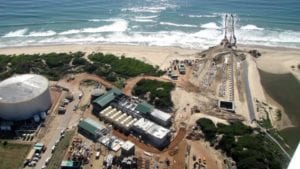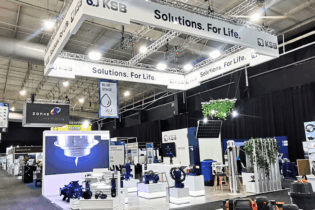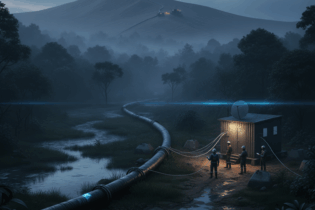South Africa is facing a deepening water crisis. The 2030 Water Resources Group predicts that based on our burgeoning population, economic growth forecasts and current water use efficiency, the country’s demand for water will exceed supply by 17% in 2030.
Joyce Moganedi, Manager of Power and Water at ABB Energy Industries South Africa, says that getting potable water from sea water must be part of the solution if we are to avert South Africa’s worst-ever water crisis. “With a coastline stretching some 2 800 kilometres, from Mozambique to Namibia, South Africa is well placed to use abundant sea water to help combat water scarcity. With the right technology and systems in place, the high energy consumption and costs typically associated with desalination can be mitigated,” says Moganedi. Three methods are used for the desalination process: reverse osmosis, multistage flash and multi effect distillation. In some cases, these can be combined in a hybrid solution. The energy requirements of a desalination plant can account for up to 50 percent of its running costs. “In the last few decades, production costs in desalination plants have fallen fourfold thanks to the emergence of highly efficient electrical equipment,” says Moganedi. “Energy efficiency and life cycle cost optimisation are the critical challenges to be overcome in the development and operation of desalination plants.” ABB’s approach to desalination has three pillars;- The first is the constant development of highly efficient products such as drives and motors that contribute to a desalination plant’s electricity bill.
- The second is accurate energy audits and advice for plant modifications to help the overall energy footprint, including using a variable frequency drive to control the process.
- The final, and perhaps the most important pillar, is leveraging the full potential of Industry 4.0.
Examples of desalination projects for South Africa to emulate include the world’s largest desalination plant in Taweelah, Abu Dhabi, United Arab Emirates, Moganedi asserts.
“The power solutions provided by ABB will enable this facility to set new benchmarks for its size, efficiency and cost by utilising the lowest amount of energy per cubic metre of water produced.” The plant will have the capacity to process over 900 000 cubic metres of seawater per day; enough to meet the demands of over 350 000 households. It is scheduled to be fully operational in the fourth quarter of 2022. At the Magtaa desalination plant in the western Oran region of Algeria, ABB supplied a turnkey electrical solution to power what was, at the time, the world’s largest membrane-based reverse osmosis seawater desalination plant. This plant has a designated capacity of 500 000 cubic metres per day of drinking water to serve about five million people. “ABB was responsible for the design, engineering, supply, installation and commissioning of the electrical plant system, which included constructing a 220kV outdoor substation to provide power to the facility and supply products such as power transformers, medium-voltage drives and a range of medium and low-voltage switchgear,” says Moganedi. Other projects utilising ABB solutions are the Jeddah Reverse Osmosis Desalination Plant Phase 1 and the Yanbu Reverse Osmosis Desalination Plant – both in Saudi Arabia. The Jeddah plant has a capacity of 48 848 cubic metres a day. ABB supplied a distributed control system using state-of-the-art digital technology for the Yanbu plant, which consists of five major components: a seawater supply system, a feed water pre-treatment system, high-pressure pumping, reverse osmosis modules and a permeate post-treatment system. In Oman, ABB contributed to the development of one of the largest reverse osmosis plants in the Gulf. The Al Ghubra plant has a potable water production capacity of 191 000 cubic metres a day; equivalent to supplying a population of 800 000 people using reverse osmosis to desalinate sea water. “South Africa is a water scarce country. Our situation is becoming more desperate because of climate change, water pollution and overwhelmed water infrastructure. The holistic solution to ensuring clean, safe water for all South Africans must include desalination. It is increasingly being used by countries around the world to close gaps between water supply and demand,” says Moganedi.






